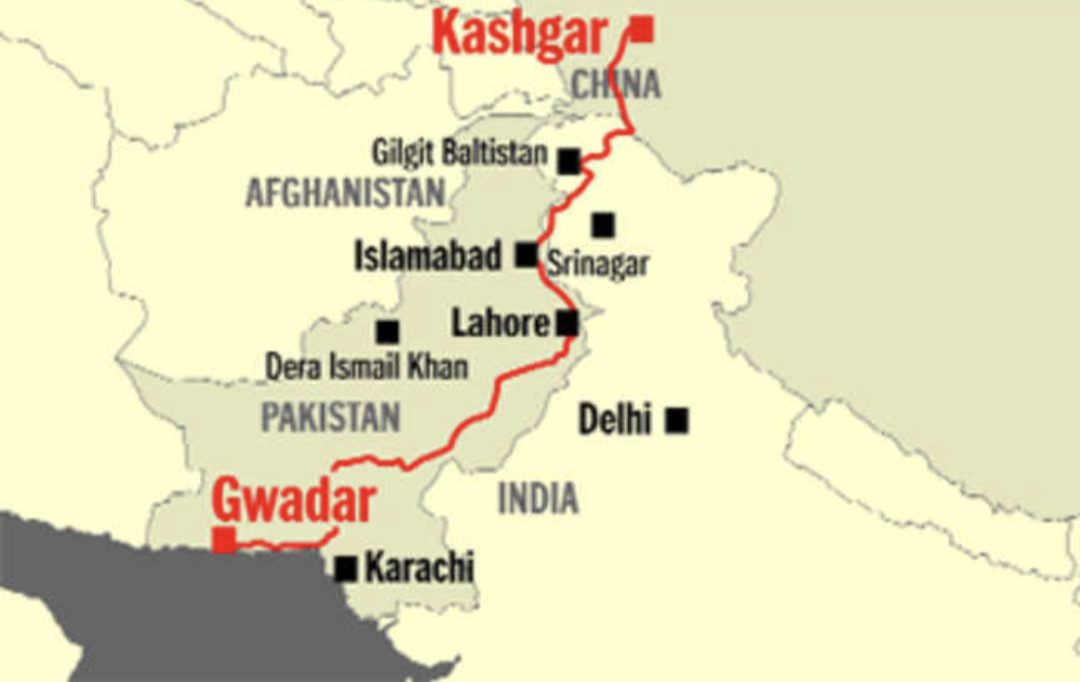The once much celebrated China-Pakistan Economic Corridor (CPEC) from China’s Xinjiang province, running up to Gwadar in Balochistan, Pakistan is becoming increasingly dysfunctional leading to frustrations in both countries. The big projects that were planned under the CPEC are facing issues vis-a-vis the required funds and the completed projects are being shut down, a media portal reported. It also added that the Government of Pakistan has now also abolished the CPEC authority, which was set up for smooth and rapid development.
The foundations of CPEC were laid during Chinese Premier Li Keqiang’s visit to Islamabad in May 2013. At the time, Pakistan was reeling from regular bomb blasts, chronic power shortages and weak economic growth. China made a commitment to play an integral role in Pakistan’s economy with Li exhorting both countries to “focus on carrying out priority projects in connectivity, energy development and power generation and promoting the building of a China-Pakistan economic corridor.”
Lately, Beijing has been reluctant to release the pledged funds for infrastructure projects. To add to the woes, Chinese companies have also stopped generating electricity for CPEC projects demanding repayment of loans. High-interest rates on CPEC loans, rising project costs, weak projects, and attacks on CPEC infrastructure are major issues. The CPEC was launched as a part of China’s larger Belt and Road Initiative project, launched by the Chinese President in 2013, drawing worldwide attention.
But things did not go as planned, and as Pakistan’s economic situation deteriorated into dire straits, the country was pushed into the vicious pit of debt. Many of the mega CPEC projects worth close to $62 billion has not entered the starting phase even after all these years.
This has led to growing frustration in Pakistan with the Federal Minister for Planning and Development Ahsan Iqbal recently expressing dissatisfaction over the slow progress of important projects. Many Pakistani politicians and experts were concerned about the potential of the project and its tough loan terms were a matter of concern since the initiation of the project.
A potent factor for the slowing down of the CPEC has been the energy crisis in Islamabad, leading Chinese companies to cut-off power generation. The shortage was more than 6,000 MW when 15,500 MW of energy was produced, the report said.
Chinese companies have also decided to cut power generation by 1980 MW. Due to the non-payment of PKR 300 billion, the installed capacity has increased by only 37%, giving birth to a new wave of power crisis in Pakistan. Islamabad's response to the removal of the CPEC has given a clear signal that it does not want China's influence in Pakistan to continue, the report said, adding that, Pakistan has spent a large portion of its revenue on repaying loans for the CPEC project. However, many CPEC projects have been delayed or failed.
To aggravate the situation, China has stopped paying for the final stages of major projects, pressurising Pakistan. A new wave of energy crisis has gripped Pakistan as Chinese companies will not generate electricity until their payments are made,
The need for reform has been given much emphasis in successive IMF programs, numerous World Bank and IMDB reports and also by a broad segment of Pakistan’s economic analysts. Reforms are much needed in the power sector where increased power generation has aggravated the sector’s debt crisis. As of June 2020, more than $13 billion had been accumulated in circular debt.
Pakistan has also done little to break the powerful vested interest groups. A recent United Nations report estimated that the elites of Pakistan receive about $17.4 billion in economic privileges — including tax breaks and preferential access to capital — which amounts to almost 6 per cent of Pakistan’s GDP.
Every average Pakistani believed that the CPEC would be a “game-changer” and would lift the country from its dire economic situation, bringing in development and prosperity. However, the gap between Beijing and Islamabad has been widening with every passing day adding to the disarray of the project.
